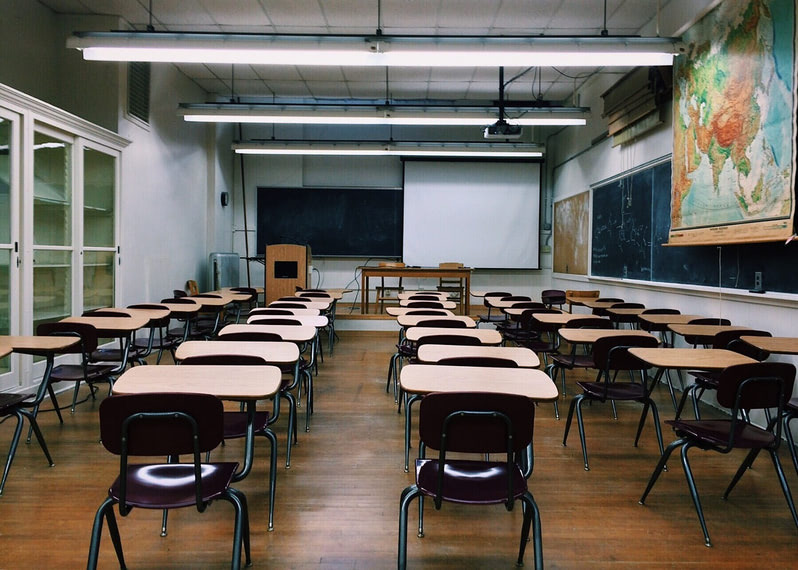How Ofqual plans to calculate summer 2020 grades in lieu of exam results – Sector Response

Since the Secretary of State for Education @GavinWilliamson announced that the 2020 #exam series in England would be cancelled to help fight the spread of #Coronavirus (COVID-19), @Ofqual have been developing a process to fairly recognise students’ work and makes sure they get their grades in time to progress.
Gavin Williamson MP, Secretary of State for Education, has written to Sally Collier, Chief Regulator of Ofqual earlier today to give direction about calculating summer 2020 grades in lieu of exam results.
Today (3 Apr) Ofqual have explained to schools, colleges, students, parents & carers how #GCSE and #ALevel results will be awarded, following the cancellation of this year’s exams.
How GCSEs, AS & A levels will be awarded in summer 2020: @Ofqual sets out details for schools, colleges, students, parents & carers on how #GCSE and #ALevel results will be awarded following the cancellation of this year’s exams. Since the Secretary of… https://t.co/xr9igPdiKJ pic.twitter.com/CB12ET4lOh
— FE News – The #FutureofEducation News Channel (@FENews) April 3, 2020
Schools and colleges will be asked to provide GCSE, AS and A level, EPQ and AEA grades for their students – the grades they are most likely to have achieved if they had sat their exams – to exam boards.
Additionally schools will have to set out the rank order of students within each grade – for example, for all those students with a grade of 5 in GCSE maths, a rank order where 1 is the most secure / highest attaining student. This is because the standardisation process used by Ofqual – to make sure grades are spread consistently – requires more granular information than grades alone.
Exam boards will put all grades through a process of standardisation using a model being developed with Ofqual and this will determine their final grade before those grades are provided to pupils in the summer.
Students who are unhappy will have the opportunity to sit exams as soon as is reasonably possible after schools and colleges open again. Students will also have the option to sit their exams in summer 2021.
Further guidance on other general and vocational or technical qualifications will be provided shortly.
Sector Response to Ofqual’s announcement on GCSE and A Levels
 Sally Collier, Chief Regulator, Ofqual, said:
Sally Collier, Chief Regulator, Ofqual, said:
“School or college based assessment already has an important role in many GCSEs, AS and A levels and in extraordinary circumstances such as these, schools and colleges are best placed to judge the likely performance of their students at the end of the course.
“We have worked closely with the teaching profession to ensure that what we are asking is both appropriate and manageable, so that everyone can have confidence in the approach. I would like to take this opportunity to thank teachers and school leaders for making this process work for students during these very challenging times.
“We have published a message to students to reassure them that we, and exam boards, will do everything we can to make sure that, as far as possible, grades are fair and that they are not disadvantaged in their progress to sixth form, college, university, apprenticeships, training or work because of these unprecedented conditions.
 Education Secretary Gavin Williamson, said:
Education Secretary Gavin Williamson, said:
“Cancelling this summer′s exams was a necessary step to help fight the spread of coronavirus by asking people to stay home, protect the NHS and save lives.
“Despite the difficult circumstances we are facing, this guidance provides assurance to students, parents and schools that grades awarded this summer will accurately reflect students’ abilities and will be as valid this year as any other.”
“Exam boards will be contacting schools, colleges and other exam centres after Easter asking them to submit, by a deadline that will be no earlier than 29 May 2020.”
 Minister for Universities, Michelle Donelan said:
Minister for Universities, Michelle Donelan said:
“I know many students will be anxious at this unprecedented time and worried about what it means for their future.
“My top priorities are to both reassure students and protect our world leading higher education sector. That is why I am calling for an extension to the pause on changes to university offers, and I urge universities to adhere to this so we ensure long term stability across the admissions system.
“We will continue to work closely with the sector to ensure every effort is made to limit the impact of COVID-19 on students and providers.”
 Angela Rayner MP, Labour’s Shadow Education Secretary, commenting on the government’s announcement about school exams, said:
Angela Rayner MP, Labour’s Shadow Education Secretary, commenting on the government’s announcement about school exams, said:
“Hard working students rightly want a fair mark for their work and deserve more clarity and leadership than we’re getting from the government, which all too often during this crisis seems to be a step behind what is needed.
“We have always said predicted grades are not always accurate, and can disproportionately affect the children who need the most support, and we pushed ministers to ensure students can sit an exam later if they wish.
“Labour is writing to the Education Secretary for more details. It is crucial that pupils, teachers and parents know what the action plan is.”
 Tom Bewick, Chief Executive of the Federation of Awarding Bodies (FAB), said:
Tom Bewick, Chief Executive of the Federation of Awarding Bodies (FAB), said:
“FAB’s examination board members have been working extremely hard with DfE and Ofqual to come up with a system that is fair to all students who were due to take GSCE and A-Level examinations this summer. The agreed model will ensure progression for students, while maintaining the integrity of the national examinations system, where over time, high standards are maintained and grade inflation is avoided.”
“However, we need to be clear that the estimation approach for these academic qualifications will not work for the majority of vocational technical qualifications.
“These awards are very different in nature to GCSEs and A-Levels and we look forward to Ofqual making progress, working with our members, on how learners taking these qualifications can be adequately acknowledged for their achievements during the COVID-19 crisis.”
 David Hughes, Chief Executive, AoC said:
David Hughes, Chief Executive, AoC said:
“This transition of the assessment system is a sensible and pragmatic approach that places high trust in teachers, schools and colleges. Colleges will implement this process rigorously and professionally in order to generate accurate and fair outcomes. It is vital that students understand fully how the process will be run and are confident that the process will be fair and robust. We want to ensure that no student is disadvantaged.
“As well as GCSEs and A Levels, hundreds of thousands of students were due to take vocational and technical qualifications and functional skills this summer. Every one of those students needs reassurance that their studies will result in the qualifications they have worked so hard for, so we are working hard with Ofqual, DfE and awarding organisations to agree a way forward and look forward to guidance being issued shortly.
“In any grading system which relies in part on teacher guidance, we know that there is potential for some groups of students to do less well than others. Ofqual’s equalities impact assessment needs to take into account the research evidence on this, such as the findings that there is systemic under-prediction for black and minority and disadvantaged candidates in university admissions. We will work with others to correct for this so that no student faces additional disadvantage.”
 Nicola Dandridge, Chief Executive, Office for Students (OfS) said:
Nicola Dandridge, Chief Executive, Office for Students (OfS) said:
“We welcome Ofqual’s efforts to provide as normal as possible an assessment cycle in these very difficult circumstances, and the clarity that this announcement will provide to GCSE and A level students about what they can expect in the coming months. In implementing this new process, it is crucial that safeguards are built in to ensure it is fair for all students – especially those from particular groups that in the past have been shown to be more likely to have their grades under-predicted.
“This is a very unsettling time for GCSE and A level students, so it is critical that they are able to benefit from high quality information, advice and guidance to make good decisions about the next step in their educational journey.
“Universities and colleges must also ensure that their admissions processes work effectively to identify applicants with the potential to succeed, particularly where those applicants have experienced barriers and disruption on their route to higher education.”
 Clare Marchant, UCAS’ Chief Executive, said:
Clare Marchant, UCAS’ Chief Executive, said:
“It’s essential for their future education and careers that students receive a set of fair and justifiable examination results. The processes outlined by Ofqual today will do exactly that.
“The best available evidence in the extraordinary circumstances we are all in will be used to calculate regulated grades that will stay with students for years to come.
“For those applying to higher education, we expect them to be treated fairly and consistently, and universities and colleges to consider these grades in the same way as any qualifications from previous years.”
 Chief Executive of Universities UK, Alistair Jarvis, said:
Chief Executive of Universities UK, Alistair Jarvis, said:
“No aspiring student should be disadvantaged because of the current Covid-19 outbreak and this is welcome progress towards ensuring students and universities alike can take confidence in the way A-levels are awarded this year.
“It is clear that a robust process will be in place that takes account of a wide range of information about a student and their performance throughout the course of their current study, and that standardised judgements and an agreed methodology will ensure consistency and fairness. We are committed to supporting Ofqual as they continue to develop their precise methodology.
“To provide additional reassurance to students, it is important to note that universities will also have the power to be flexible in taking an applicants’ context into account as part of the admissions process.”
 Dr Mary Bousted, Joint General Secretary of the National Education Union, said:
Dr Mary Bousted, Joint General Secretary of the National Education Union, said:
“In awarding grades in GCSEs and A-Levels this year, we are pleased that the Department for Education and Ofqual both recognise the professionalism of teachers. Teachers are experts in their subjects, are taught during their training how to assess students, and regularly do so in a variety of ways during lessons and using more formal methods at different stages throughout the year. Exams are not the only way to assess someone’s ability – in fact, research shows that teacher assessment is just as reliable and stable.
“We also note Ofqual’s assurance that the work on vocational and technical qualifications is continuing with equal speed and importance. That landscape is more complex, so we appreciate it is taking longer to arrive at the right solutions. We hope to see more information for students, parents and education professionals involved with these qualifications as soon as possible.
“It is absolutely right that teachers’ grade judgements should be based on work which was done before schools and colleges shut down. Anything else would be unfair. Setting formal assessments for pupils to carry out at home would only demonstrate the inequalities of remote learning for students. We will encourage members to use Ofqual’s guidance that no student should be disadvantaged by work set for the purposes of determining a grade after schools and colleges closed.
“NEU stated that these grade judgements would need to be made using a range of evidence, and we are pleased that the regulator has agreed. This means that grades won’t be based on mock exam results, or any other single piece of evidence alone. It is important now that the guidance on what teachers can use and how they come to these judgements is clear and consistent. The NEU will be working with Ofqual and awarding organisations to help make that happen.
“In any qualification system, but particularly one created in these circumstances, it helps with consistency and fairness to have moderation and oversight from the regulator. However, many teachers will be uncomfortable with the concept of rank-ordering students, especially if it amounts to a rationing of grades based on previous performance data. Moderation does not have to mean rank-ordering students nor rationing of success and in an ideal use of teacher judgements during awarding, this would be possible
“This crisis demonstrates again that England’s high-stakes exams-based system is not resilient. In other nations of the UK, awarding is being assisted by the fact that not all of the assessment was left until exams at the end of the course. We hope the work done here can open up a longer-term conversation about the impact on our pupils of unnecessary high-stakes exams. The most important thing now, though, is to guarantee for teachers the space, support and guidance they need to come to these grading decisions, without fear of external pressure or judgement.
“Students will hopefully be further reassured by the promise of an appeals process and an opportunity to sit exams if they wish, as soon as is reasonably possible once schools re-open. Going forward we will work with Ofqual on the process for this. No qualifications system, including one based on exams, is perfect for each individual involved. However, it is important for students’ sake that their grades have value, so we must work as a sector to make it as fair and consistent as it can be. Teachers are dedicated, ethical, highly-trained professionals with expertise in their subject – both teaching and assessing it – and with the right support and backing from all involved, will absolutely rise to this challenge.”
 UCU general secretary, Jo Grady, said:
UCU general secretary, Jo Grady, said:
‘These are difficult and unprecedented times and we welcome the speed with which these plans have been pulled together. We need to have similar proposals for vocational qualifications and time to properly respond.
‘Our primary concern is that disadvantaged students are the ones most likely to miss out. Research shows that they fare badly when it comes to predicted grades and they are less likely to be able to put life on hold and delay sitting exams, or have access to the tools required to navigate any appeals system.
‘The context in which qualifications are achieved needs to be considered by colleges and universities; not all achievements are equal and they should not be seen as such. Colleges and universities will need to make greater use of contextual data so that students progress according to their achievements and, crucially, their potential.’
 Bill Watkin, Chief Executive of the Sixth Form Colleges Association said:
Bill Watkin, Chief Executive of the Sixth Form Colleges Association said:
“Ofqual has done a remarkable job in a very short period of time. The plans for the summer exam grades are sensible, sensitive and place the minimum burden on teachers while investing maximum faith in their professional judgement. There are still some details to be ironed out, particularly how the appeals process will work and how the statistical modelling will be applied.
“We must also be careful not to create inequality of opportunity, where some students are more able to benefit from the Autumn exam option than others, depending on their socio-economic status. But overall, sixth form colleges – the second biggest provider of A levels in England – will be pleased that the professionalism and expertise of teachers lie at the heart of these new plans. The next step is to ensure that classroom-based vocational qualifications, such as BTECs, receive the same treatment.”
 Sir Peter Lampl, founder and chairman of the Sutton Trust, said:
Sir Peter Lampl, founder and chairman of the Sutton Trust, said:
“There are no easy solutions to the difficult situation that schools, universities and pupils find themselves. What is most important is that all students – including those from low income families– leave school with qualifications that fairly reflect their achievements.
“Ofqual’s new guidance brings welcome clarity to how grades will be awarded. It is good that they are using a combination of methods to award grades, which should mitigate some of the uncertainty of predicted grades. It is particularly welcome that grades will be assigned based on both pupils’ prior attainment and schools’ previous performance.
“However, the emphasis on teacher assessments can unconsciously disadvantage those from low-income backgrounds so this will need to be monitored closely. The onus must also be on universities to show flexibility by the use of contextual admissions in deciding who to admit.”
Letter from Gavin Williamson to Ofqual in full
Sally Collier, Chief Regulator, Ofqual,
Earlsdon Park,
53-55 Butts Road,
Coventry
CV1 3BH
31 March 2020
DIRECTION UNDER S 129(6) OF THE APPRENTICESHIPS, SKILLS, CHILDREN AND LEARNING ACT 2009
The education system and the whole country faces unprecedented challenges in dealing with the impact of the coronavirus pandemic. I am determined that we should address this situation using all necessary measures to protect our nation’s health, while at the same time ensuring that the educational progress of our young people faces as little disruption as possible. I know you share my determination that we identify creative solutions to these challenges.
As I announced in Parliament on 18 March, we have made the difficult decision to close schools and colleges and early years settings to everyone except the children of critical workers and vulnerable children. Another issue – separate from, but related to, the closure of schools and colleges – is the summer exam series in England, during which over one million students were due to sit their GCSE, AS and A level exams in May and June this year. The purpose of this letter is to direct Ofqual, in line with section 129(6) of the Apprenticeships, Skills, Children and Learning Act 2009, in relation to the Government’s policy regarding the summer exam series. It is my policy that the 2020 summer exam series for GCSEs, AS and A levels in England cannot proceed as planned.
I have considered whether the exam series could be postponed by a matter of weeks, or longer. As you know, it is no simple matter to push back those dates due to the uncertainty of the current public health situation. A delay to exams and the issue of results would also risk prolonging the disruption experienced by students into the next academic year and would have significant repercussions for schools, further and higher education providers, and employers.
I understand that the decision to cancel, and not reschedule, this year’s exam series will give rise to concern that this year’s GCSE, AS and A level students will be disadvantaged in comparison to previous and future years. Therefore, despite the cancellation of exams, it is Government policy that this year’s cohort of GCSE, AS and A level students be issued a set of results this summer in order to allow them to progress to further study or employment.
As such, it is Government policy that these students should be issued with calculated results based on their exam centres’ judgements of their ability in the relevant subjects, supplemented by a range of other evidence. A number of students will already have completed non-exam assessments in some subjects and, where that evidence usually counts towards a grade, it should be taken into account in generating centres’ judgements.
In order to mitigate the risk to standards as far as possible, the approach should be standardised across centres. Ofqual should also mandate the method of calculating final grades based on the evidence provided for each student. Ofqual should ensure, as far as is possible, that qualification standards are maintained and the distribution of grades follows a similar profile to that in previous years.
It is important that students should have access to a right of appeal if they believe the process was not followed correctly in their case. Ofqual should therefore develop such an appeal process, focused on whether the process used the right data and was correctly applied, rather than seeking to overturn teachers’ professional judgement on individual students’ ability.
That said, I understand that some students will feel that they would have done better had they had the opportunity to prove themselves in an exam rather than relying on teacher judgements to calculate their grades. The Government considers that students who do not feel their calculated grade reflects their ability should be afforded an opportunity to sit an exam at the earliest reasonable opportunity. Accordingly, I hereby direct Ofqual to take account of this policy and work with the exam boards and others to plan to enable this group of students to sit exams as soon as reasonably possible after schools and colleges are open again, pursuant to the power of direction referenced above.
There will of course be other difficulties and risks with the approach outlined above, but I am confident that Ofqual can work with exam boards to mitigate these as far as possible.
I would ask that Ofqual makes the appropriate changes to its regulatory framework, and works with exam boards, teachers and other professionals in the education sector, to give effect to the policy positions outlined above. I will also be writing to you separately about the arrangements for vocational and technical qualifications.
This letter will be published as a direction under section 129(7) of the Apprenticeships, Skills, Children and Learning Act 2009.
I am copying it to:
- Roger Taylor, Chair of Ofqual;
- Robert Halfon MP as chair of the Education Select Committee;
- Kirsty Williams AM and Peter Weir MLA as Education Ministers in Wales and Northern Ireland respectively; and to
- John Swinney MSP as Cabinet Secretary for Education and Skills in the Scottish Government.
Rt Hon Gavin Williamson CBE MP, Secretary of State for Education
Documents
Direction to the Chief Regulator of Ofqual
PDF, 199KB, 2 pages
Details
This is a direction under section 129(6) of the Apprenticeships, Skills, Children and Learning Act 2009 about calculating students’ exam results during the coronavirus (COVID-19) outbreak.
This direction follows a previous announcement about cancelling exams.
Ofqual guidance on arrangements for awarding GCSE, AS and A level grades in summer 2020 is available.











Responses